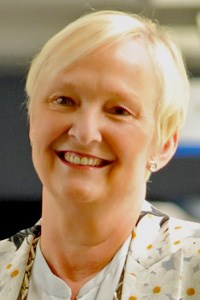Q: Was there a particular job, opportunity or experience which convinced you to apply for the chief executive role?
I sometimes describe myself as the accidental chief executive because I never aspired to take on the role. In many ways I was also the accidental medical director. My temptation into these roles came from a longstanding conviction that clinicians have a duty to deliver and improve care and lead changes in service delivery based on the need to improve services to patients. I spent six years in my medical director role and during that time worked with six chief executives. I came to understand that a key requirement for our hospital was continuity and commitment from the senior team and was drawn into the role with a degree of humility on the basis that I had witnessed the considerable challenges at close hand.
Q: As a clinician, what makes the trust chief executive job rewarding for you?
The opportunity to draw our hospital teams back to what matters most with the knowledge that the understanding of front line services need to have a major say in the direction in which services need to develop is a privilege. On a day-to-day basis speaking to patients and staff is often humbling – sometimes because of the positivity and sometimes because it gives me a chance to hear about the key improvements needed. The difficulty of the role is usually overshadowed by being able to make a difference everyday in some way or another.
I came to understand that a key requirement for our hospital was continuity and commitment from the senior team and was drawn into the role with a degree of humility on the basis that I had witnessed the considerable challenges at close hand.
Chief executive
Q: How does your clinical background help you to perform effectively as a trust chief executive?
Being a clinician who has spent over 35 years in active clinical service means that clinical medicine is in my blood and the things I have learned from that will always be with me. Some of the lessons come from an understanding of front line services, some from learning about what matters to patients and some from managing families and carers. The lessons of medicine are often also lessons for life and for understanding how staff feel about the care they give at the most difficult of times. All of this I think helps to keep perspective and in managing the most complex of environments. It is these lessons that always remind me that in the end I am accountable to patients and to staff above all other groups and organisations.
Q: What do you think is more important for your performance as a trust chief executive?
I think my performance is linked both to my background and to the person I am. I chose my career on the basis of my values and interests and the career has shaped who I am. Medicine has given me a basis for understanding the human condition and I use that every day in the decisions I make.
The lessons of medicine are often also lessons for life and for understanding how staff feel about the care they give at the most difficult of times. All of this I think helps to keep perspective and in managing the most complex of environments.
Chief executive
Q: What are the challenges you've faced balancing your priorities as a clinician and your responsibilities as a trust chief executive? How have you overcome these?
Strange as it may seem, one of the biggest challenges I face is around the engagement of senior medical staff. I am more prone to challenge them than someone who does not have a clinical background and they may be disappointed that I cannot champion their views over those of others. This can be tricky on a number of levels. I have put in a clinically-led and managed structure in the hospital but clinicians still do not feel that their views are appropriately regarded on many occasions.
I also know how hard it is to balance the priority of the patient in front of one with the priorities of all the patients who might need a service and perhaps most importantly I understand the heartbreak of not being able to deliver the care that one would wish. I have come to terms with this myself by having to be satisfied with my own performance if I have done the very best I can each day but I often feel a sense of regret that I cannot do more to improve things.
About the author

